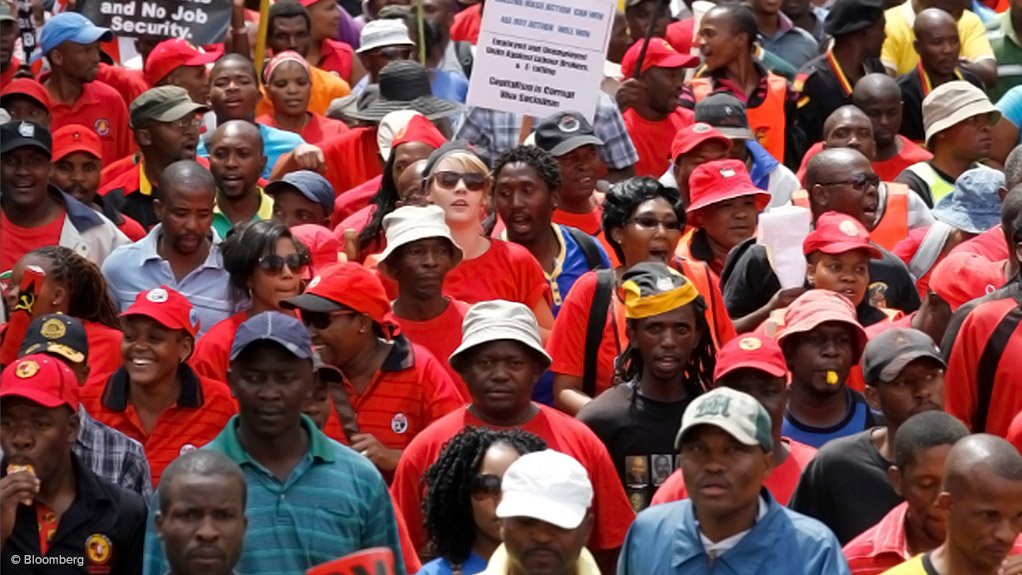Trade union Cosatu had had a direct and indirect role in the destruction of an estimated one-million jobs in the South African economy over the last five years, said economic adviser to PwC Roelof Botha on Tuesday.
Speaking to Engineering News Online at the Civilution conference, in Ekurhuleni, the economist said Cosatu – “a dangerous organisation” – had achieved this through a combination of unrealistic minimum wage demands, the violent nature of labour action, and the resultant growing shift by the production and manufacturing sectors to automation.
“Factories will typically decide to use a machine requiring fewer operators in an effort to reduce their workforce,” said Botha.
He believed the mining sector had not been an employment generator in recent years, as it had failed to recover since the recession, with this sector set to increasingly move towards automated mining techniques as strikes in the sector continued.
Botha said it was a fallacy that wages in South Africa were low, as they were three times higher than the average wage in sub-Saharan Africa.
He said one of the biggest success stories of South Africa, in turn, had been that gross national income per capita had increased 40%, in real terms and inflation adjusted, to R60 000, in 2013, from 1997.
He added that basic income grants were the best way to combat poverty in South Africa.
Botha believed the biggest challenge for the South African economy in 2015 would not be electricity, or the lack thereof, but rather skills shortages, especially at government level.
One solution was to second professionals from the private sector to municipalities to solve the multitude of dysfunctionalities that existed on local government level, he said.
Botha expected South Africa’s gross domestic product (GDP) growth to reach 4% next year.
The interest rate could move another 0.5% this year, but he was positive it could remain at the current level in 2014 and 2015.
The rand was likely to remain stable against the dollar this year, at R10.40 to R10.60, noted Botha.
He added that it was myth that the rand was weak, quipping that the media created the impression that the currency “was on par with the Zim dollar”.
The rand was indeed weaker than it was, said Botha, but should one factor out inflation the rand was as strong as it had been in 2001.
Botha believed the rand had been overvalued during and after the recession.
“The rand is not [currently] weak in real terms.”
Botha also targeted the media for its “hysteria” over urban tolling, or the implementation of the user-pay principle, on Gauteng’s freeways.
He said this principle was the “only way” to fund new urban highways in South Africa.
GAUTENG BECOMING AFRICA’S SINGAPORE
There was nothing negative to Nigeria overtaking South Africa as Africa’s biggest economy, said Botha. The same was true for the high GDP growth achieved in the economies around South Africa.
“What is good for Africa is good for South Africa.”
Botha said Gauteng remained a central point of convergence in Africa, with Africans coming to Gauteng for shopping and medical procedures.
“Gauteng is becoming Africa’s Singapore.”
Botha also disputed the opinion held by some commentators that South Africa could soon expect its own Arab Spring.
He believed these Middle-Eastern and North African uprisings were the result of people seeking freedoms that were enshrined and protected in South Africa’s Constitution, such as freedom of speech, religion and association.
“We have micro problems in South Africa, not macro problems. Our problems can be solved.”
EMAIL THIS ARTICLE SAVE THIS ARTICLE
To subscribe email subscriptions@creamermedia.co.za or click here
To advertise email advertising@creamermedia.co.za or click here











